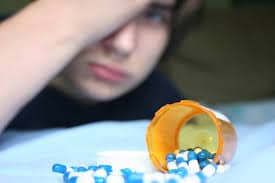How Prevalent is Drug Use in Minors – Should Parents be held Responsible?
Minors take drugs for a wide number of reasons including wanting to feel different, the need to feel part of a group, or to escape psychological/emotional pain.
Whether it is the excitement of taking risks, social pressure, boredom, or they do drugs just for fun; teenagers are not immune when it comes to illicit drug use. However, many parents worry that their child experimenting with drugs will lead to an addiction to harder drugs like ecstasy, heroin, cocaine or worse crystal meth down the road. Is drug use in minors something we should worry about?
How prevalent is drug use in minors?
The 2010 National Drug Strategy Household Survey revealed that 14.5 per cent of youth aged 13 to 18 had taken some type of illicit drug. The most common illegal substance was marijuana with almost 20 per cent of teens having tried it at least once in the past 12 months. The survey also showed that male youth were more likely than female youth to use substances.
What drugs are teens taking?
A 2011 report entitled Australian secondary school students’ use of tobacco, alcohol, and over the counter and illicit substances, revealed that of the 23,000 students surveyed, three percent of youth aged 12 to 17 years old have tried amphetamines or ecstacy. Another 1.5% have tried heroin and approximately one in six have sniffed inhalants like petrol, glue and solvents.
Should parents be criminally responsible for their children’s drug use?
Parents have a strong influence on their children’s physical, social and psychological well-being. It is commonly agreed that one of the most critical roles of a parent is to teach their children responsible, acceptable behavior. However, in today’s culture this may be particularly hard when moral lines between what is right and wrong are blurred in the violent video games our kids play, the music they listen to and the films they watch that glorify criminal behaviour.
Although it is recognised that these factors may influence children’s behaviour; it is not enough critics argue to absolve parent’s responsibility of their children’s delinquent behaviour. When real life rules are disobeyed and laws are broken holding parents responsible is an accepted technique of juvenile crime control. Under this premise it is believed that if parents perform their legal responsibility, children will subsequently improve their behaviour.
The Children (Protection and Parental Responsibility Act) in NSW came into effect in 1997. The Act takes for granted that parents are primarily responsible for their children’s actions and allows the court to make various orders to parents of a child who has committed an offence.
Orders include:
- Requiring parent(s) to attend court proceedings,
- Undertakings for parents to do certain things, or
- Parents to give security for the good behaviour of the child.
According to the Act it is an offence if a parent had “by wilful default or neglect, contributed to their child’s commission of an offence. “
Critics argue however, that penalising parents for their children’s illegal behaviour does not address the underlying causes of inadequate parenting. For example, lack of adult supervision due to parents having to work long hours just to be able to support their families.
Ways to prevent your teen from using drugs
The best parent in the world cannot always prevent their teen from using drugs. Suggestions to help prevent teens from using drugs include:
- Practice what you preach and be a good role model. If you drink do so in moderation and do not use illicit drugs.
- Foster a close relationship with your child from an early age. One in which they feel safe to come and talk to you about drugs.
- Model and encourage a healthy lifestyle that includes eating well, regular exercise and participating in sports and other programs.
- Give your child opportunities early on to develop good decision-making skills.
- Get to know your child’s friends and the groups he or she hangs out with.
- Establish agreements and guidelines about what is acceptable behaviour around alcohol and drugs.
- Develop agreements between you and your teen as to what is acceptable and what is not when it comes to legal and illegal substances.
- Keep up-to-date on drug trends and educate your child on the dangers of drug use.
- Be open about discussing drugs and the dangers of drug use.
(Source: Better Health -Victoria State Government).
Although it is agreed that drug use among teens is bad. Some argue that the use of alcohol or tobacco may be more apt to threaten the health of teenagers than the use of illicit drugs. For example, research suggests that parents should be more concerned with the use of legal substances like tobacco and alcohol because of their long term ill health effects. The 2010 National Drug Strategy Household Survey highlights that 2.5 per cent of teenagers between the ages of 12 and 17 reported smoking daily with those in the higher age groups smoking at higher rates.
Whether it is legal or illegal substances, parents often do their best to encourage their children to follow a healthy lifestyle and support them to make good decisions when it comes to substance use. Children do not live in a vacuum though. Influences come from a variety of people and places in society. As the saying goes it takes a village to raise a child. Instead of criminalising parents for what may be a teenager’s rite of passage. It might make more sense to support parents in their journey of parenting.







